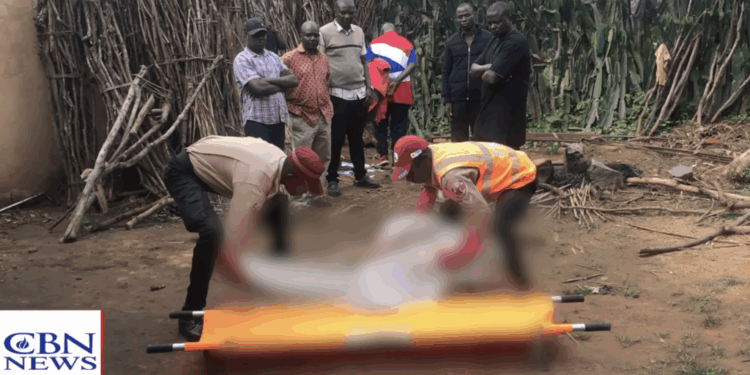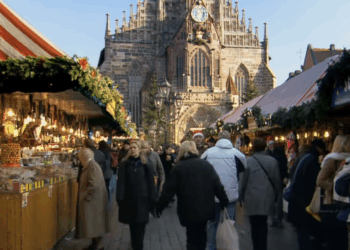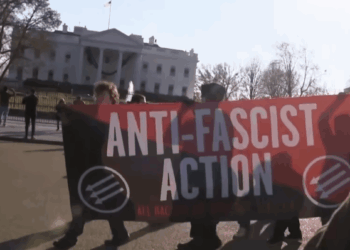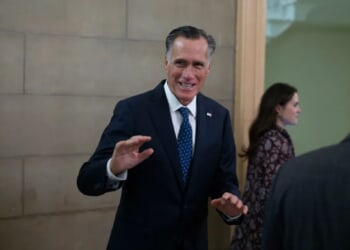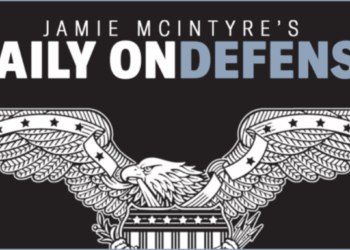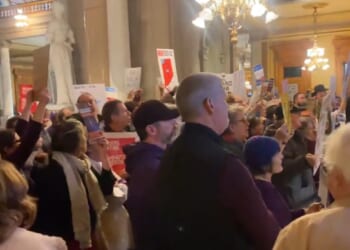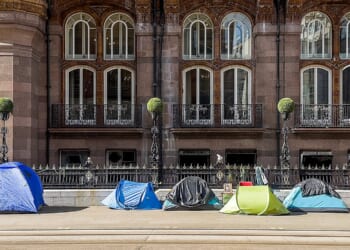President Donald J. Trump took to X last Friday to denounce the persecution of Christians in Nigeria. Within days, the U.S. Department of State officially re-designated Nigeria as a Country of Particular Concern for “severe violations of religious freedom,” marking a sharp turn from the Biden administration’s reluctance to confront this ongoing tragedy. Trump’s spotlight on Nigeria was timely, necessary, and, if history is any guide, effective.
Nigeria, home to Africa’s largest Christian population, has seen a sharp rise in religious persecution. Attacks against Christians have become increasingly common as Fulani herders, members of a Muslim tribe, encroach upon historically Christian communities and seize land during deadly raids. Forty Christians, including children and the elderly, were killed in one such raid earlier this year. Attacks by the Fulani coincide with a broader campaign waged by Islamic terrorists seeking to savagely enforce Sharia law.
This year, more than 7,000 Christians have been killed — an average of 35 per day — with hundreds more kidnapped, tortured, or displaced by Islamist extremists, including Boko Haram, ISIS, and Fulani militants. Between 50,000 and 100,000 Christians have been killed and over 19,000 churches destroyed since 2009. Open Doors, a leading watchdog group, reports that more Christians are killed in Nigeria each year than in the rest of the world combined.
President Trump spotlighting Christian persecution in Nigeria at a time when Islamic terror already represents a key concern in both the U.S. and Europe testifies to the brutal truth of the antagonist. Islamist terror and the governments that enable or ignore it are the enemy; President Trump’s voice matters precisely because he says what others will not and, because when he speaks, the world listens and takes his threats seriously. His statements carry credible moral and political consequences.
Importantly, his warning about Nigeria shines an uncomfortable light on the persecuted Church worldwide, including inside our own nation and Europe. Christians in Africa face down the barrels of guns, but believers in Europe are facing a quieter, subtler campaign of marginalization that erodes their freedom of conscience, speech, and worship.
In England and Wales, for example, new “buffer zone” laws now make it a crime to “intentionally or recklessly influence” a person’s decision to obtain an abortion. This phrasing has been used to punish peaceful, even silent, prayer. In 2022, Adam Smith-Connor was convicted under the law for silently praying outside an abortion facility for his deceased son. He was given a two-year conditional discharge and ordered to pay more than £9,000 in court costs for his private prayers on a public sidewalk.
Europe’s churches are under siege. In 2023, the Observatory on Intolerance and Discrimination Against Christians in Europe (OIDAC) documented 2,444 anti-Christian hate crimes and acts of discrimination, including 232 personal attacks involving harassment, threats, or violence. Nearly 1,000 incidents occurred in France. In Spain, a jihadist attacker stormed two Catholic churches in Algeciras, murdering an altar server with a machete while shouting “Allahu Akbar” and “Death to Christians.”
The pattern continues into 2024. In France, arson attacks on churches rose by 30 percent in a single year, with nearly 50 attempts recorded. Thefts from Christian sites rose to 288 — five per week. In September, the Church of the Immaculate Conception in Saint-Omer was burned to the ground by a repeat offender with a record of anti-Christian hate crimes. France’s own Interior Ministry admits that 90 percent of the 1,000 religious attacks it tracks annually target Christian sites. Christian persecution in Europe has been on the rise over the past decade, proliferating at the hands of violent Islamic extremists and governments that tolerate Christian persecution.
While persecution manifests differently than in Nigeria and may be more bureaucratic rather than militant in the West, it is particularly pernicious because novel anti-Christian laws violate the Christian values promised by our Constitutions, fought for in our revolutions, and that hold our societies together.
No doubt these instances weaken the moral confidence and public presence of the Christian Church. The West must not deceive itself into thinking persecution always begins with martyrdom; it may easily begin quietly, with regulation and arrest for public prayer. It begins with saying that faith is tolerable in private but never in public.
President Trump’s intervention is an essential reminder to Christians in the West. His leadership spotlights both the overt brutality of Islamist extremism and the creeping institutional persecution taking root in the supposedly free West. The test at this time across Western civilization is whether we will recognize both forms for what they are.
Remember, if the president’s approach is effective, it will be less about his rhetoric and more about his credibility. America is now willing to call evil by its name and back moral clarity with consequences. In our time, refocusing on religious freedom is essential. The global Christian Church remains the single most persecuted institution on earth. The question now is whether the Western world, the historic guardian of religious liberty, will once again defend it, or whether it will surrender its obligation.
Kristen Ziccarelli is the Senior Policy Analyst for Homeland Security & Immigration and the Director of Global Coalitions at the America First Policy Institute.

